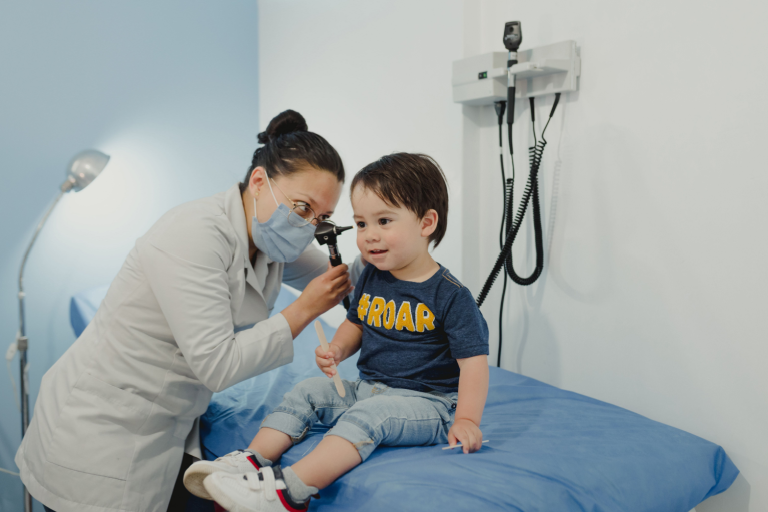
Home » Nursing Careers » Adult-Gerontology Nurse Practitioner
Adult-Gerontology Nurse Practitioner
- Updated May 7, 2023
- by EveryNurse Staff

As the global population continues to age, the demand for healthcare services that cater to older adults increases. Adult-gerontology nurse practitioners (AGNPs) are specially trained healthcare providers who are responsible for providing compassionate care to adult and elderly patients. The scope of practice of AGNPs encompasses a wide range of healthcare services, including diagnosis, treatment, and management of various health conditions prevalent amongst the elderly. In this article, we will discuss the role of AGNPs, their education and certification requirements, and the common health conditions they diagnose and treat in older adults.
What Is an Adult-Gerontology Nurse Practitioner?
AGNPs are registered nurses who have completed additional education and certification requirements to specialize in caring for adult and elderly patients. These healthcare providers are trained to diagnose and treat various health conditions prevalent in older adults, including chronic illnesses and complex medical conditions. In addition to treating and managing these conditions, AGNPs also provide preventative care to their patients to improve their overall health and quality of life.
As the population ages, the need for specialized care for elderly patients becomes increasingly important. AGNPs play a crucial role in healthcare by providing comprehensive care to this population. They work closely with physicians and other healthcare providers to ensure that patients receive the best possible care.
What Does an Adult-Gerontology Nurse Practitioner Do?
The role of AGNPs in healthcare is crucial, especially with the increasing need for specialized care for elderly patients. AGNPs can diagnose and manage health conditions, order diagnostic tests, and prescribe medications and other treatment modalities. Furthermore, AGNPs can administer vaccinations, conduct physical exams, and provide counseling and education to patients and families on how to manage specific health conditions. The primary focus of AGNPs is to provide patient-centered care that addresses the unique healthcare needs of each patient.
AGNPs work in a variety of healthcare settings, including hospitals, clinics, long-term care facilities, and private practices. They collaborate with physicians and other healthcare providers to develop treatment plans that meet the specific needs of each patient. AGNPs also work closely with patients and their families to ensure that they understand their healthcare options and are able to make informed decisions about their care.
AGNP Role and Responsibilities
AGNPs have a wide range of responsibilities, including:
- Conducting comprehensive physical exams and patient assessments to evaluate overall health and identify potential health issues
- Ordering and interpreting diagnostic tests, such as bloodwork, imaging studies, and electrocardiograms (ECGs), to diagnose health conditions
- Developing and implementing individualized treatment plans based on patient needs and health status
- Prescribing medications and other treatment modalities, such as physical therapy or rehabilitation, to manage health conditions and improve quality of life
- Providing counseling and education to patients and their families on how to manage specific health conditions, such as diabetes, hypertension, or arthritis
- Administering vaccinations and other preventive measures to protect against common illnesses and diseases
- Collaborating with physicians and other healthcare providers to develop comprehensive treatment plans that meet the specific needs of each patient
- Conducting regular follow-up appointments to monitor patient progress, adjust treatment plans as needed, and ensure that patients are receiving the best possible care
AGNP Education & Certification Requirements
AGNPs must complete a Master of Science in Nursing (MSN) or a Doctor of Nursing Practice (DNP) degree with a focus on adult-gerontology. They must also be registered nurses with an active license in their state of practice. AGNPs must complete their education at an accredited institution and pass a national certification exam to qualify for licensure. They must also maintain continued education to keep their licensure in good standing.
AGNPs receive extensive training in the diagnosis and treatment of health conditions that are common in older adults. They also receive training in the management of chronic illnesses, such as diabetes, heart disease, and arthritis. AGNPs are well-equipped to provide comprehensive care to their patients and to help them manage their health conditions effectively.
Related APRN Careers
Common Health Conditions in Older Adults
Cardiovascular Diseases
Cardiovascular disease (CVD) is a prevalent health condition among older adults. CVD refers to a group of conditions that affect the heart and blood vessels, including coronary artery disease, heart failure, and arrhythmias. AGNPs are often responsible for the diagnosis and management of CVD. They work with patients to understand their risk factors, such as high blood pressure, high cholesterol, and smoking, and develop treatment plans that reduce their risk of complications and improve their overall cardiovascular health.
In addition to pharmacological treatments, AGNPs may also recommend lifestyle modifications, such as diet and exercise, to help manage CVD. They may also collaborate with other healthcare professionals, such as cardiologists and cardiac rehabilitation specialists, to provide comprehensive care to patients with CVD.
Respiratory Disorders
Respiratory disorders such as chronic obstructive pulmonary disease (COPD) and asthma affect the respiratory system and can cause shortness of breath, wheezing, and other respiratory symptoms. AGNPs are trained to diagnose and manage these respiratory disorders using pharmacological and non-pharmacological treatment options.
For patients with COPD, AGNPs may recommend bronchodilators and corticosteroids to help manage symptoms. They may also suggest pulmonary rehabilitation programs that include exercise and breathing techniques to improve lung function. For patients with asthma, AGNPs may prescribe inhalers and recommend trigger avoidance strategies to help prevent exacerbations.
Neurological Conditions
Age-related neurological conditions such as Alzheimer’s, Parkinson’s, and stroke are common amongst older adults. AGNPs play a vital role in the diagnosis and management of these conditions. They work with patients and their families to develop care plans that improve patients’ abilities to manage their symptoms and maintain their quality of life.
For patients with Alzheimer’s and other forms of dementia, AGNPs may recommend medications that help manage cognitive symptoms, such as memory loss and confusion. They may also suggest non-pharmacological interventions, such as cognitive stimulation therapy and caregiver support groups. For patients with Parkinson’s disease, AGNPs may prescribe medications that help manage motor symptoms, such as tremors and rigidity. They may also suggest physical therapy and exercise programs to help improve mobility and balance.
Musculoskeletal Issues
Arthritis, osteoporosis, and fractures are common musculoskeletal issues that affect the elderly. AGNPs are responsible for diagnosing and treating these conditions and are trained to develop care plans that address the unique needs of each patient.
For patients with arthritis, AGNPs may recommend over-the-counter or prescription medications to help manage pain and inflammation. They may also suggest physical therapy and exercise programs to improve joint function and mobility. For patients with osteoporosis, AGNPs may prescribe medications that help prevent bone loss and reduce the risk of fractures. They may also recommend calcium and vitamin D supplements and weight-bearing exercises to promote bone health.
Mental Health Concerns
Mental health concerns such as depression, anxiety, dementia, and delirium are prevalent in older adults. AGNPs are trained to diagnose and treat these conditions and work with patients and their families to develop care plans that address not only the patient’s mental health needs but also their cognitive and physical needs.
For patients with depression and anxiety, AGNPs may recommend medications and therapy to help manage symptoms. They may also suggest lifestyle modifications, such as exercise and stress reduction techniques, to improve overall well-being. For patients with dementia and delirium, AGNPs may prescribe medications that help manage cognitive symptoms and behaviors. They may also recommend non-pharmacological interventions, such as environmental modifications and caregiver support programs, to promote patient safety and improve quality of life.
Assessment and Diagnosis Techniques
Assessing and diagnosing health conditions in older adults is a complex process that requires a comprehensive approach. Advanced practice registered nurses (APRNs) with a specialization in gerontology use various techniques to diagnose and manage health conditions in older adults. The following are some of the most common techniques used in practice today:
Comprehensive Geriatric Assessment
Laboratory Tests and Imaging
Cognitive and Mental Health Assessments
Non-Pharmacological Treatment Approaches
Lifestyle Modifications
Physical and Occupational Therapy
Nutrition and Hydration Management
Mental Health Support and Counseling
Adult-Gerontology Nurse Practitioner Salary
Adult-gerontology nurse practitioners (AGNPs) are highly trained healthcare professionals who specialize in caring for the adult and elderly population. Due to the increasing need for specialized care for older adults, AGNPs are in high demand across the United States. AGNPs are well-compensated for their skills and expertise, with salaries that reflect their advanced education, training, and experience.
According to the U.S. Bureau of Labor Statistics (BLS), the mean annual salary for nurse practitioners, including AGNPs, was $124,680 as of May 2022. The highest 10 percent of nurse practitioners earned more than $165,240 per year, while the lowest 10 percent earned less than $87,340 per year.
Top-Paying Industries
According to the BLS, the top-paying industries for nurse practitioners, including AGNPs, were:
- Personal care services: $139,580
- Outpatient care centers: $129,820
- Offices of other health practitioners: $127,590
- General medical and surgical hospitals: $123,490
- Colleges, universities, and professional schools: $111,830















